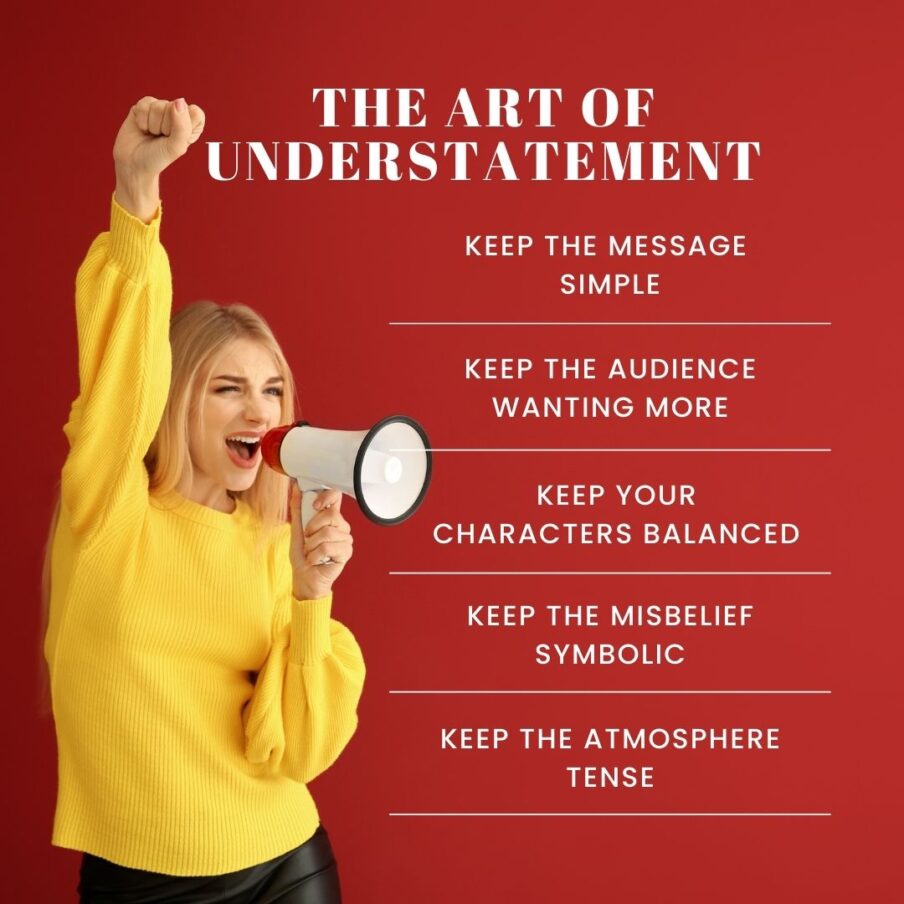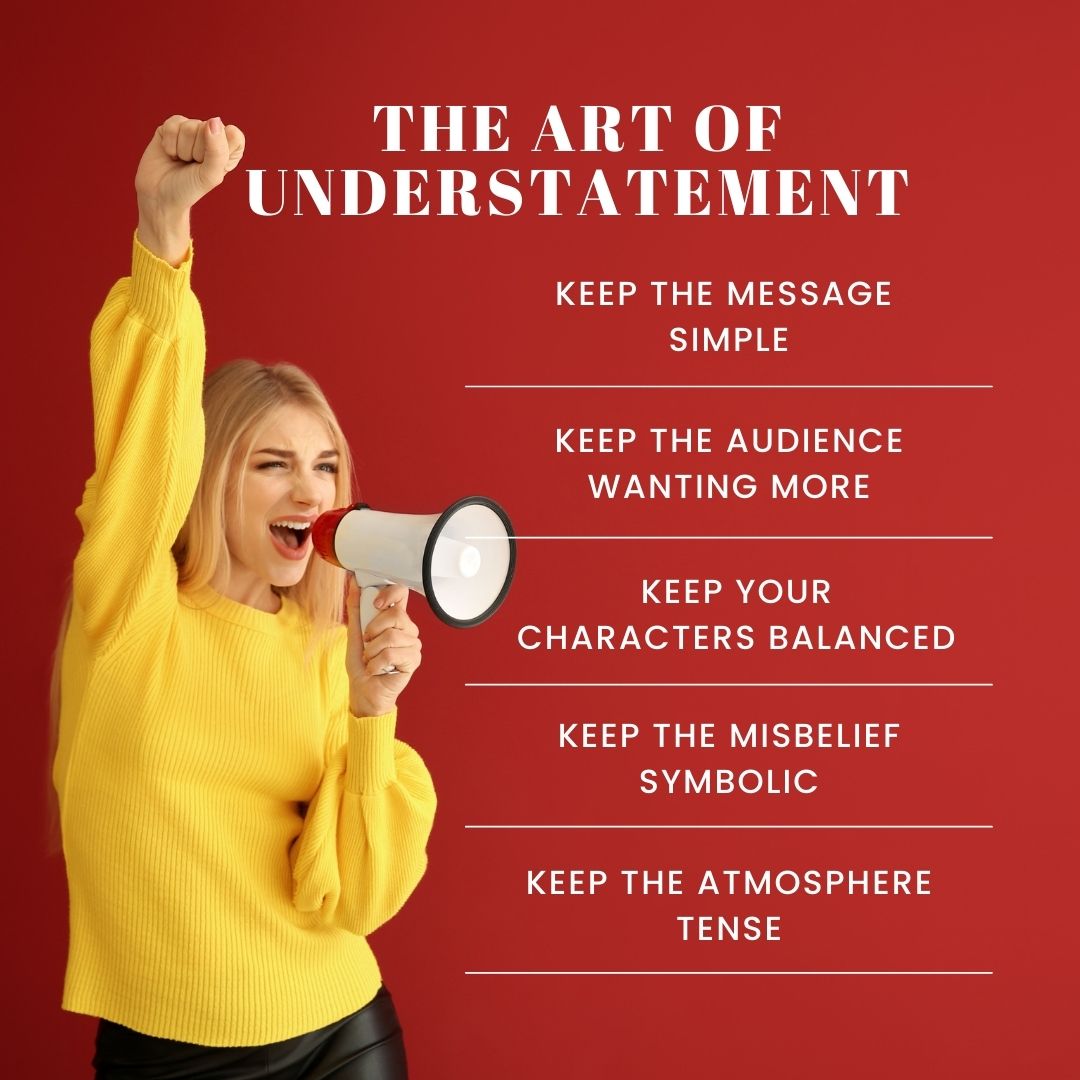by Angela Ruth Strong, @AngelaRStrong
There’s a scene in The A-Team where the guys are inside a tank that’s parachuting from an airplane, and they fire a cannon to push the tank in the direction they want to go. Jessica Beal’s character calls it “flying a tank.” Then she says this statement that sometimes describes my writing a little too well. “They specialize in the ridiculous.”
As much as I love writing larger than life characters in over-the-top situations, those moments have to be earned for them to mean anything. I’ve critiqued/judged one too many manuscripts that starts out with the wife finding out her husband has a porn addiction and falling to the floor a sobbing mess. That’s melodrama. So let’s talk about how you can get to a place where falling to the floor is both respectable and relatable.
- Keep the message simple. In the movie Good Will Hunting, Will is a tough kid who never had a safe place to mourn his lack of a safe place. He prides himself on holding in his emotions. Robin Williams plays his therapist, and Will is pretty much a jerk to Robin, but Robin cares for him anyway, and they develop an unlikely friendship. The touching moment comes when Robin says, “It’s not your fault.” Will waves it off the first couple of times, and even tries to push him away, but Robin keeps repeating it. “It’s not your fault.” The most profound truths are often the simplest, and Will ends up sobbing in Robin’s arms in this Oscar-winning scene.
- Keep the audience wanting more. In Undeniably Yours, Becky Wade has a whole meet cute told in the heroine’s POV and ends with her going to bed and sleeping better than she’d slept in a long time. The chapter then breaks to the hero’s POV for one line that basically says he didn’t sleep at all that night. I loved it because it was both unexpected and telling. I had to keep reading to find out later what he’d been thinking.

- Keep your characters balanced. I’m currently reading Pepper Basham’s upcoming epistolatory novel, Authentically, Izzy, where the main character is a lover of words, and her sweet, extrapolating letters, texts, and emails are filled to the brim like Earl Grey in a China teacup. Her cousin Luke is reluctantly pulled into these email threads, and his short responses are more like a shot of whiskey. He says less, so his words pack more of a punch.
- Keep the misbelief symbolic. In a YA novel by Meg Cabot, Teen Idol, a friend tells the main character she’s “the mayonnaise.” This means the heroine holds her friend group together like a sandwich by being the peacemaker. It becomes her identity. The problem is that solving all her friends’ problems keeps her from what she really wants for herself. This symbol is so understandable that whenever she makes a poor choice based on her misbelief, she doesn’t have to explain it to the reader. She can simply claim, “I’m the mayonnaise,” and the reader gets it.
- Keep the atmosphere tense. Agent Donald Maass writes a lot about catharsis—those moments like the breakdown in Good Will Hunting. Yes, there has to be an outlet for all that tension, but first there has to be tension. Understatement is the constant drizzle of rain that breaks the dam. If your whole story is a thunderstorm, your reader is going to take shelter and not feel the zap of lightning you’re preparing to send their way.
Once you master the art of understatement, your story can soar. Don’t take out your over-the-top moments, just use understatement as the airplane from which a tank can fly.
In a world full of happily-ever-after love, Meri Newberg feels like the last young woman on the planet to be single, at least in her Christian friend group. So when she’s handed a strange present at the latest wedding–a 1950s magazine article of “ways to get a husband”–she decides there’s nothing to lose by trying out its advice. After all, she can’t get any more single, can she?
Her brother’s roommate sees the whole thing as a great opportunity. Not to fall in love–Kai Kamaka has no interest in the effort a serious relationship takes. No, this is a career jump start. He talks Meri into letting him film every silly husband-catching attempt for a new online show. If it goes viral, his career as a cameraman will be made.
When Meri Me debuts, it’s an instant hit. People love watching her lasso men on street corners, drop handkerchiefs for unsuspecting potential beaus, and otherwise embarrass herself in pursuit of true love. But the longer this game goes on, the less sure Kai is that he wants Meri to snag anyone but him. The only problem is that he may not be the kind of husband material she’s looking for . . .
Angela Ruth Strong sold her first Christian romance novel in 2009 then quit writing romance when her husband left her. Ten years later, God has shown her the true meaning of love, and there’s nothing else she’d rather write about. Her books have since earned TOP PICK in Romantic Times, been optioned for film, won the Cascade Award, and been Amazon best-sellers. She also writes non-fiction for SpiritLed Woman. To help aspiring authors, she started IDAhope Writers where she lives in Idaho, and she teaches as an expert online at WRITE THAT BOOK.



